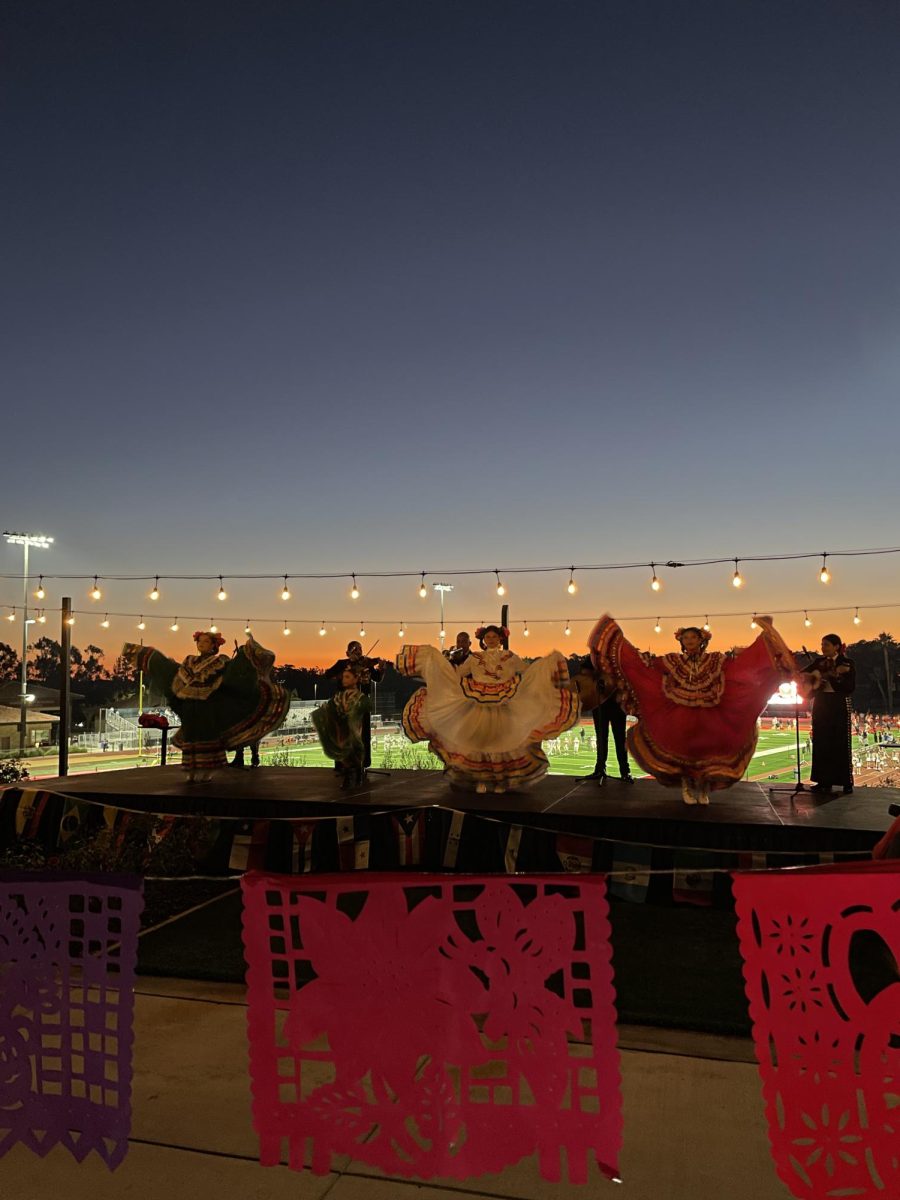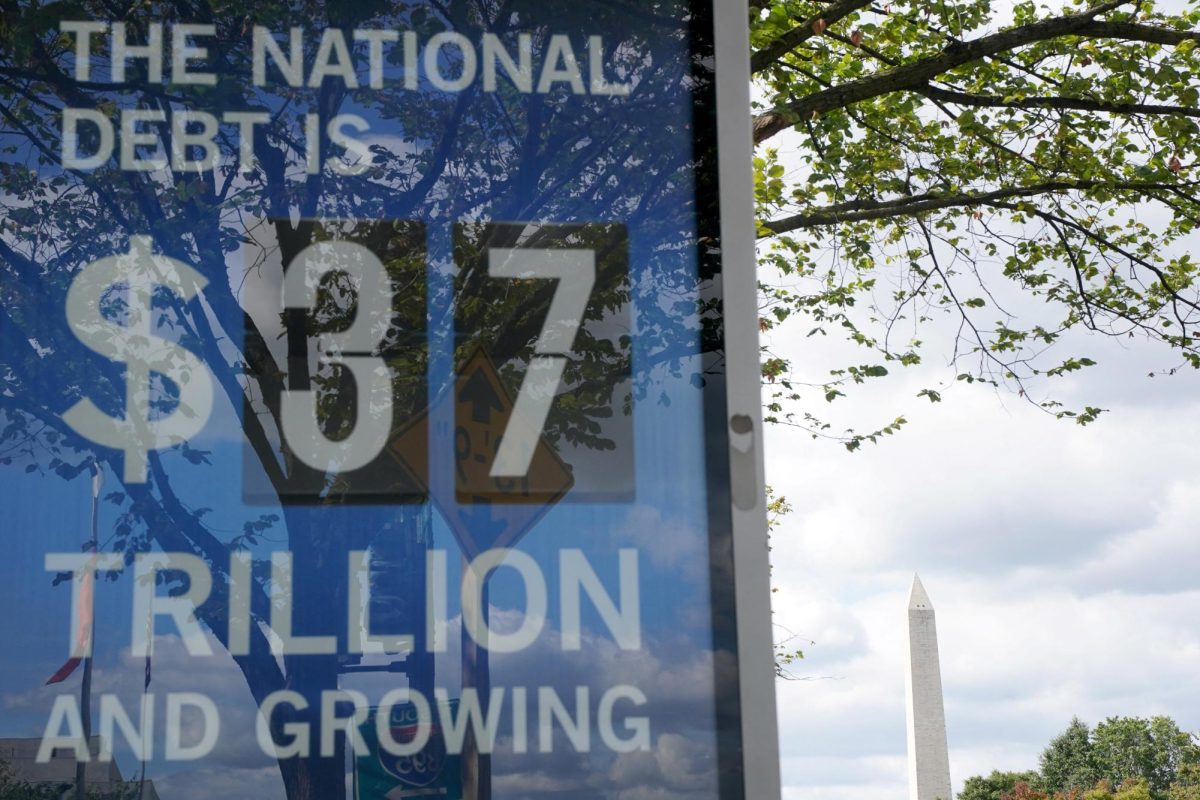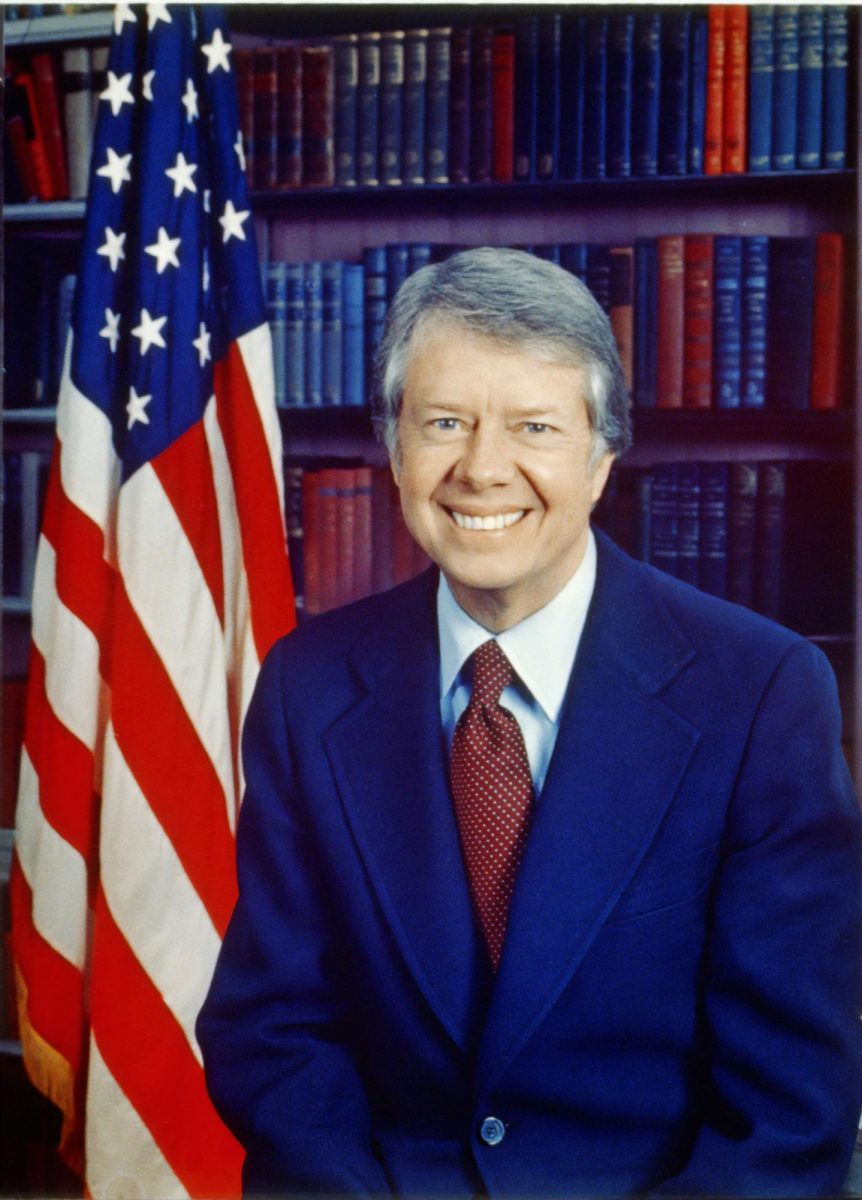Jimmy Carter’s life is proof of the power of humility, service, and compassion. From a peanut farmer in Georgia to the 39th president of the United States, Carter prioritized human rights and peace. Through his humanitarian work and commitment to building a better world, he continued to set the precedent for post-presidency action.
Early Life:
Carter was born in 1924 in Georgia. In 1946, he graduated from the Naval Academy in Maryland where he married Rosalynn Smith, who raised 3 sons and a daughter together. He served as a naval officer for 7 years before entering state politics in 1962 where he was elected governor of Georgia eight years later.
According to The White House, “Among the new young southern governors, he attracted attention by emphasizing ecology, efficiency in government, and the removal of racial barriers.”
After his time in state politics, Jimmy Carter ran for President in 1974 against President Gerald Ford, winning by 297 electoral votes to 241 votes for Ford.
Presidency:
Throughout Carter’s time in office, he had many accomplishments in response to major issues globally. He worked to combat inflation and unemployment, increased the job market by nearly eight million jobs, and decreased the budget deficit. He dealt with energy shortages by establishing an energy policy and decontrolling domestic petroleum prices to stimulate production.
One of his major goals during his presidency was to improve the environment by expanding the National Park System and including 103 million acres of Alaskan land for protection.
Another major priority for Carter was human rights which he prioritized by creating the Department of Education, strengthening the Social Security system, and employing a record number of women, African Americans, and Hispanics in government positions.
Additionally, he helped bring amity between Egypt and Israel through the Camp David agreement of 1978 and helped establish relations with the People’s Republic of China.
When interviewing history teacher Mr. White about how Jimmy Carter’s emphasis on human rights defined his time as a president, Mr. White said, “In the past, US presidents would support dictators who were friendly with the U.S. and promised to not become Communist, but did horrible things to their people.”
Mr. White continued to explain, ‘“Jimmy Carter said that if you are doing horrible things to your people, if you are violating their human rights, we are not going to be friends with you.”
Carter’s commitment to prioritizing human rights set a major precedent for future presidents, to not only focus on building alliances but also making sure that human rights were protected.
Although he had countless accomplishments during his time as president, issues with peace between the Soviet Union resulted in his failure to get reelected. Carter attempted to ratify the Salt 11 pact, a nuclear limitation treaty with the Soviet Union. Unfortunately, the Soviet invasion of Afghanistan caused the suspension of plans to ratify.
“The consequences of Iran’s holding Americans captive, together with continuing inflation at home, contributed to Carter’s defeat in 1980. Even then, he continued the difficult negotiations over the hostages,” according to The White House.
Post-Presidency:
After his presidency, Carter continued to prioritize human rights and peace. He founded the Carter Center in 1982, a non-profit human rights organization.
According to CBS News, the Carter Center aimed at “preventing and resolving global conflicts, promoting freedom and democracy, and improving the health of millions of people around the world.” Carter also worked to conduct fair elections in developing countries and helped lead efforts to eliminate Guinea worm disease across Africa.
One of his most notable accomplishments was his teamwork with Habitat for Humanity which helped build homes for those in need. Habitat for Humanity through the help of the Carter Center repairs 4,390 homes in 14 cities with 104,000 volunteers.
Sadly, on December 29, 2024, Jimmy Carter passed away at the age of 100. Carter’s life highlights what it means to prioritize the good of all. His advocacy for peace, human rights, and justice demonstrates his commitment to building a better and safer world.























































quin • Feb 4, 2025 at 2:06 PM
I think Jimmy Carter is great and so is this article. Good Job!
brooklynn kiil • Jan 29, 2025 at 2:11 PM
I enjoyed this article; I liked his early life and presidency segments!!